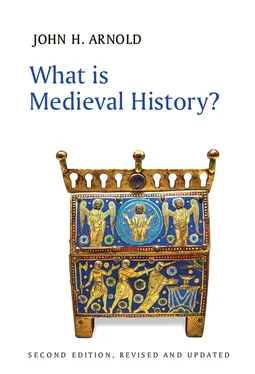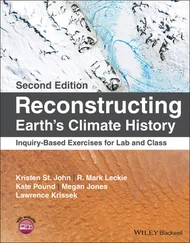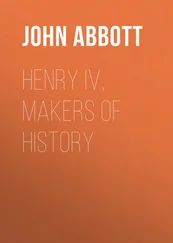None of these national differences is absolute or insuperable, and the entrance of further players into the game – Spain, Poland, Japan, Hungary – helps to foster better communication across borders. All countries complain that their scholarship is insufficiently read abroad: at a conference I attended when first writing this book, I had identical conversations along this line with two distinguished scholars, one English and one French, each bewailing the tendency of the other’s country to ignore their compatriots’ work. But conversations do happen, books get read, translated, discussed, ideas pass across borders, are reshaped in the process, then handed back to their progenitors in new forms. Medieval history is an international conversation, which is part of its pleasure; nonetheless, any student of the period must be aware of its national inflections.
The fourth and final problem is whether there was a ‘middle ages’ at all. As we have seen above, the notion of a different (and lesser) period separating the classical past from the ‘modern’ age was the invention of Renaissance humanists, and became a solidified periodization in the seventeenth century. We have got into the habit, over the course of the last few centuries, of talking about ‘medieval’ this and ‘the middle ages’ that. For those of us working in academe, ‘medievalist’ often tends to be a source of professional identity (which, if nothing else, excuses us from knowing about things outside our period). But none of this is an essence drawn from the past. We could attempt to periodize differently – or not at all. The notional boundaries between ‘late antiquity’, ‘medieval’ and ‘early modern’ (or indeed ‘Renaissance’) are all deeply problematic, inevitably Eurocentric, and can obscure as much as they reveal. At the earlier end, for example, historians have increasingly seen continuities between some Roman structures and practices and later ‘barbarian’ principalities; at the later juncture, there has been great debate over the degree to which intellectual, cultural and political developments of the Renaissance were prefigured in twelfth- and thirteenth-century Europe.
However, most who work on some aspect of the period 500–1500 do tend to feel, whether consciously or not, that it has some features that distinguish it (or parts of it – we usually specialize within that 1,000-year span) from earlier or particularly later eras. These are predominantly European features, though not exclusively so. We are looking at past times, from after the end of the Roman Empire, but before the expansion of western colonialism. In almost all places, the basis of the economy was agricultural, resting on exploiting labour surplus from a large mass of more or less subservient peasants. Communication across regions was relatively slow, and could not be relied upon to be uniform in content or reception; power structures tended to rely heavily upon intrapersonal relations, and where bureaucracies developed they were fragile in comparison to later times. The human experiences that left their marks on the written archive were always but a small fraction of the totality that once existed. None of this absolutely distinguishes ‘the middle ages’ from other periods, nor do these features pertain in all times and places; but they indicate some shared centre of expectation for those studying it. A crude but perhaps useful way of reflecting on this is to think critically about the alterity, the ‘otherness’, of the middle ages – as I suggested at the beginning of this chapter. We may have certain expectations of medieval ‘otherness’ drawn from popular culture; these can be put to one side, albeit perhaps with some effort. But there is a more profound question that historians must confront: were medieval people like us, or were they fundamentally different? Or, to put it with greater nuance, at what points must one entertain the possibility of fundamental difference between then and now, and at what points might one consider essential continuities? This is a theme to which we shall return throughout the book.
While some historians do attempt to chase themes over a very longue durée – pursuing a history of death from antiquity to modernity, for example – the majority specialize in particular periods, and the depth of knowledge that this facilitates is undoubtedly useful. But it should perhaps be best remembered as a professional and intellectual choice rather than something that the past somehow foists upon us; and, as I will suggest later in this book, medievalists must also try to think about how they might speak beyond their own period, to join in even larger conversations than those they hold between themselves. Because framing the middle ages – placing it into some meaningful context or narrative – has always been and will always be a political act, as well as an historiographical one. This is the overarching issue mentioned above, and it informs, wittingly or unwittingly, all that we do as medieval historians. ‘The middle ages’, however they are understood, have always been part of a wider argument, even if only tacitly, about ‘progress’, ‘government’, ‘human nature’, ‘civilization’, and so forth. They currently play a particular role in arguments about the perceived ‘clash of civilizations’ between West and East, in the denunciation by some commentators of particular Islamic practices as ‘medieval’, in the use of the term ‘crusade’ by both an American president and anti-western Islamic radicals, and in the very sense in which ‘West’ is assumed to be geopolitically opposed to ‘East’. Doing history is political, and doing medieval history no less so than other, more recent, periods.
1 1. It is possible (if mapellus is a variant or mistranscription of napellus) that this was a juice made from the plant monkshood (aconite); my thanks to Richard Kieckhefer.
2 2. Bartolomeo’s depositions are edited from the Vatican archives in P. K. Eubel, ‘Vom Zaubereiunwesen anfangs des 14. Jahrhunderts’, Historisches Jahrbuch 18 (1897): 609–25. The case is discussed, and further evidence against the Visconti edited from MS Vat. Lat. 3936, in R. Michel, ‘Le procès de Matteo et de Galeazzo Visconti’, Mélanges d’archaéologie et d’histoire de l’École Française de Rome 29 (1909): 269–327.
3 3. U. Eco, ‘Dreaming of the Middle Ages’, in Travels in Hyperreality (London, 1987), 69.
4 4. Quoted in E. Breisach, Historiography: Ancient, Medieval and Modern (Chicago, 1983), 207.
5 5. P. Burke, ‘Ranke the Reactionary’, Syracuse Scholar 9 (1988): 25–30; A. Grafton, The Footnote: A Curious History (London, 1997).
6 6. P. Novick, That Noble Dream: The Objectivity Question and the American Historical Profession (Cambridge, 1988), 26–30.
7 7. M. Innes, ‘A Fatal Disjuncture? Medieval History and Medievalism in the UK’, in H.-W. Goetz and J. Jarnut, eds, Mediävistik im 21. Jahrhundert (Munich, 2003), 73–100; R. N. Soffer, Discipline and Power: The University, History, and the Making of an English Elite 1870–1930 (Stanford, 1994).
8 8. C. Carpenter, ‘Political and Constitutional History’, in R. H. Britnell and A. J. Pollard, eds, The McFarlane Legacy (Stroud, 1995), 175–206.
9 9. M. Bloch, La Société féodale, 2 vols (Paris, 1939, 1940); Feudal Society, trans. L. A. Manyon (London, 1961). M. Bloch, Apologie pour l’histoire, ou Métier d’historien (Paris, 1949); The Historian’s Craft, trans. P. Putnam (New York, 1953).
10 10. H. J. Kaye, The British Marxist Historians, 2nd edn (Basingstoke, 1995).
11 11. Novick, That Noble Dream; P. Freedman and G. Spiegel, ‘Medievalisms Old and New’, American Historical Review 103 (1998): 677–704.
12 12. G. Spiegel, ‘History, Historicism, and the Social Logic of the Text in the Middle Ages’, Speculum 65 (1990): 59–68; P. Zumthor, Speaking of the Middle Ages, trans. S. White (Lincoln, NB, 1986).
Читать дальше




